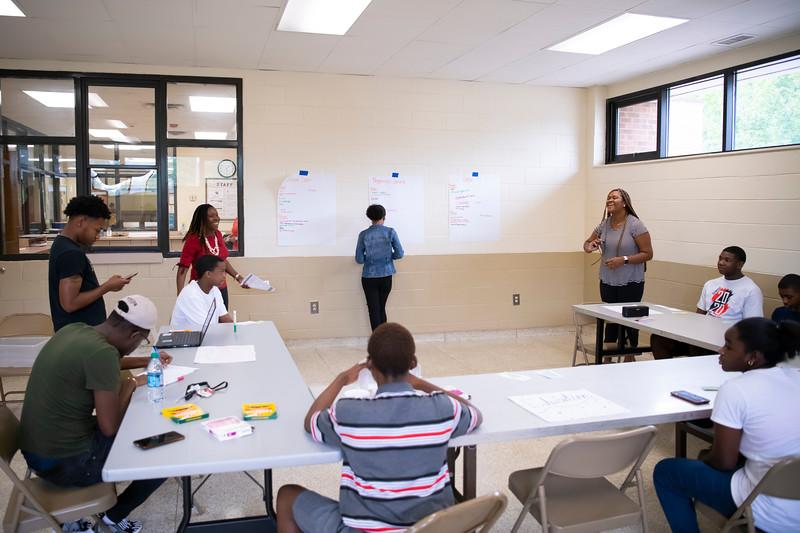SRCD Member Spotlight: Dr. Charity Brown Griffin AERA-SRCD Early Career Research Fellows in Middle Childhood Education
by Gabby Galeano

Dr. Charity Brown Griffin is an Assistant Professor of Psychological Sciences at Winston-Salem State University, a certified school psychologist, and a licensed psychologist in the state of North Carolina. She is a 2019-2021 AERA-SRCD Fellow. The AERA-SRCD Early Career Research Fellowship in Middle Childhood Education and Development is a 2-year collaborative opportunity for early career scholars to build a research network of peers with integrated interests and expertise at the nexus of child development and formal/informal education and learning in their broader social contex.
Dr. Griffin's current research program draws on cultural ecological frameworks to better understand how schools and communities influence black youths’ development, specifically their educational and psychological outcomes, and including gender variations.
Dr. Griffin’s research has found that students’ positive perceptions of school racial climate (e.g. perceiving your school as being racially fair, seeing less teacher and peer discrimination) have a positive influence on their school engagement (e.g. complying with rules, attending class, feeling a sense of belonging) and cognitive engagement (e.g. wanting to master the material, using self-regulated learning strategies, etc.). Further, her work also points to a positive association between black youths’ identity and building resilience in the face of tense school racial climates. Dr. Griffin now hopes to develop culturally specific interventions and programming, such as creating resource toolkits for schools.
The nature of Dr. Griffin’s research has presented unique hurdles along the way, however. “Racialized experiences among black youth…that can be a very uncomfortable subject for many people,” she notes. It can be tricky to explore questions of fairness, discrimination in institutional settings, and especially tackling data that prompts action. Some of her research proposals presented to school district officials were even rejected, but as any scholar knows: “You persist. The questions; they have to be answered. The work needs to be done.”
Despite these setbacks, Dr. Griffin has been able to visit participating schools several times a week over a long period of time, allowing her to build long-lasting relationships with school administrators, students, and other community members. Recently, she has begun centering the students’ perspectives and goals in an effort to better understand how they perceive their communities and school spaces.

This new bottom-up project—The YouthRISE Summer Program—convenes local high school students (and some middle schoolers) to learn about what constitutes a community, how ‘agency’ is defined, and invites them to think about the most pressing concerns within their communities and school spaces. Whether it is imagining their dream school or using PhotoVoice (a program that provides digital cameras and other digital storytelling resources to participants) to “capture the representation of their community,” the students build the confidence and skills to better engage with their peers and community members, to think about their future aspirations, and to cultivate a positive sense of self. The students then present their work to key stakeholders (e.g. city council officials, principals) at the end of the program.
“It’s really about centering the youth’s perspective in the work and then generating their own research questions,” explains Dr. Griffin.
The YouthRISE Summer Program thus offers high school students some insights into behavioral and social science research-related careers. Not only do students learn early on about how to conduct fieldwork and think about community issues more critically, the program also helps in dispelling any misconceptions about what researchers do and look like.